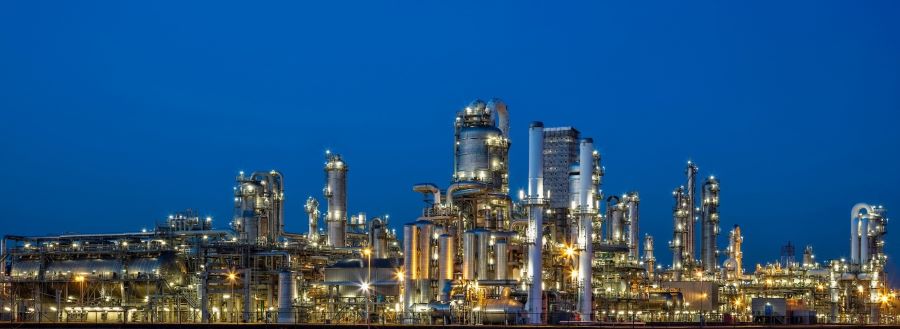
Specialized and focused training for security professionals working in the Chemical, Petrochemical, and Utilities (CPCU) industry can contribute significantly to the overall safety and reduce risk. Proper training affects the safety and security of co-workers, contractors, and visitors at any given location, in addition to the areas surrounding the facility. Special attention should be made regarding the specific type of materials being handled or processed at the location. Hazardous incidents can lead to damage of property, injury, loss of production, or loss of life if proper safety and security training is not conducted. A critical step in ensuring safety and security in this industry is making sure each security officer comprehends and fully understands their training. Proper training requires hands-on learning, the review of site-specific implications, continuous industry education, and active testing. All of which Allied Universal can help you establish and set up in your daily operations.
Companies in these industries are constantly trying to find new ways to improve safety, security, reliability, and risk management at their facilities. Specific facilities like refineries, chemical plants, utilities, and terminals that frequently work with hazardous products are not like conventional workplaces. The consequence and liability of a single safety or security failure can be disastrous and costly. Proactive initial and ongoing training should be relied on rather than reactive efforts to help avoid potential safety or security issues.
Our subject matter experts in these industries can provide pre-assignment essential training, as well as carefully selected on-the-job training, specifically developed for the chemical/petrochemical vertical. Also, by using an interactive and participative approach, training can be enhanced and reinforced.
At Allied Universal, our Account Managers play a vital role in proactive training of security forces taking the lead on reviewing industry regulations and emergency response plans specific to the facility. They can develop detailed post orders and site-specific training materials. By breaking down post orders and explaining protocol in great detail, the execution of security responsibilities and safety procedures will become a standard protocol with clearly defined roles.
Drills and exercises are always crucial to ensuring everything works according to plan and you are prepared. First, you should review and write down all of the procedures and post orders for the security personnel who will be using them to make sure that the directions are clear and the steps are in the correct order. Once this is completed, ongoing drills and exercises, from tabletops to active participation scenarios, should be incorporated as part of the ongoing training program at the facility, even if there is no regulatory requirement to do so.
When ongoing training and drills take place, safety should be a top priority. “Safety First” should always be the priority for everything the security force does at chemical or petrochemical facilities. Account Managers and Shift Supervisors need to set the tone for a safety-first environment not only during initial training but also at the start of every shift, during post inspections and drills so safety standards set the foundation for the security force personnel.
Initial and ongoing training benefits everyone, including those not involved with security at the facility. Safety and security are a collaborative effort. By combining the two, the goal of having a safe and secure environment is possible with Allied Universal and our services.
About the Author
Adam Serna is Director, Chemical/Petrochemical/Utilities for Allied Universal.
He can be reached at Adam.Serna@aus.com









